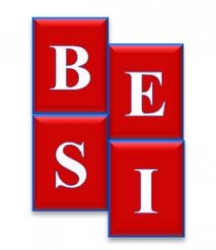Building Envelope Science Institute Heads to New Orleans with Defective Drywall Training Seminar
The certification program offered through the Institute (BESI) instructs and trains licensed and approved state contractors in the remediation of defective or corrosive drywall. The program offers certification for inspectors, consultants, project managers, and remediation contractors.

Gainesville, FL, July 08, 2010 --(PR.com)-- The Institute will host its fifth certification seminar for Defective Drywall Inspection and Remediation; the certification class will be held on July 19-20, 2010 at the Astor Crowne Plaza located at 739 Canal Street @ Bourbon in New Orleans, Louisiana.
The institute has understood from its conception that standardization of inspection and remediation protocols are essential to provide a viable solution for those owners suffering the effects of defective “Chinese” drywall. The Institute’s protocols were developed to help owners, insurance companies, investors, financial institutes, and builders recover from the stigma of having defective “corrosive” drywall.
The protocol offered through BESI provides (to-date) the most comprehensive remediation process that was developed based on proven science; and nicknamed the “BESI System” due to the institute’s endorsement. The protocol for remediation of defective drywall being offered through BESI considers the following major factors: corrosion, cross-contamination of other building materials, personal belongings, IAQ monitoring program, a proposed national warranty (not an insurance policy), and removal of the stigma from having defective drywall.
The certification program offered through the Institute (BESI) instructs and trains licensed and approved state contractors in the remediation of defective or corrosive drywall. The program offers certification for inspectors, consultants, project managers, and remediation contractors. The institute will provide information on other available remediation methods during its training seminar; however, BESI certification is only being offered on the endorsed protocol since the other remediation methods do not require a high standard of training nor do they offer third-party quality control.
It’s good to know that when your home is remediated under this protocol that it does not require additional work in order to meet the CPSC/HUD interim guidance or to be aligned with the court’s ruling. The Institute has a document that helps explain the protocol called, “The BESI System: Understanding the Protocols for Defective Drywall” which is posted on their website.
About BESI: The mission of Building Envelope Science Institute, Inc. (BESI) is to provide the highest quality of training, certification programs; resources as well as over all knowledge in successfully constructing, maintaining, and restoring building envelope construction; investigation and analysis of all new products and materials which will further develop and enhance the building envelope construction; and continuing the development and formal accreditation/certification for construction industry practitioners. The Building Envelope Science Institute has a “Nationwide Directory of Members.”
To learn more about the Institute, go online to www.BESInstitute.org, or contact info@BESInstitute.org.
###
The institute has understood from its conception that standardization of inspection and remediation protocols are essential to provide a viable solution for those owners suffering the effects of defective “Chinese” drywall. The Institute’s protocols were developed to help owners, insurance companies, investors, financial institutes, and builders recover from the stigma of having defective “corrosive” drywall.
The protocol offered through BESI provides (to-date) the most comprehensive remediation process that was developed based on proven science; and nicknamed the “BESI System” due to the institute’s endorsement. The protocol for remediation of defective drywall being offered through BESI considers the following major factors: corrosion, cross-contamination of other building materials, personal belongings, IAQ monitoring program, a proposed national warranty (not an insurance policy), and removal of the stigma from having defective drywall.
The certification program offered through the Institute (BESI) instructs and trains licensed and approved state contractors in the remediation of defective or corrosive drywall. The program offers certification for inspectors, consultants, project managers, and remediation contractors. The institute will provide information on other available remediation methods during its training seminar; however, BESI certification is only being offered on the endorsed protocol since the other remediation methods do not require a high standard of training nor do they offer third-party quality control.
It’s good to know that when your home is remediated under this protocol that it does not require additional work in order to meet the CPSC/HUD interim guidance or to be aligned with the court’s ruling. The Institute has a document that helps explain the protocol called, “The BESI System: Understanding the Protocols for Defective Drywall” which is posted on their website.
About BESI: The mission of Building Envelope Science Institute, Inc. (BESI) is to provide the highest quality of training, certification programs; resources as well as over all knowledge in successfully constructing, maintaining, and restoring building envelope construction; investigation and analysis of all new products and materials which will further develop and enhance the building envelope construction; and continuing the development and formal accreditation/certification for construction industry practitioners. The Building Envelope Science Institute has a “Nationwide Directory of Members.”
To learn more about the Institute, go online to www.BESInstitute.org, or contact info@BESInstitute.org.
###
Contact
Building Envelope Science Institute
Richard Shaffer
877-688-BESI
www.BESInstitute.org
Richard Shaffer
877-688-BESI
www.BESInstitute.org
Categories

